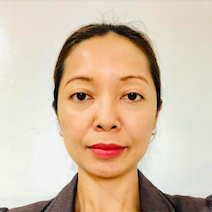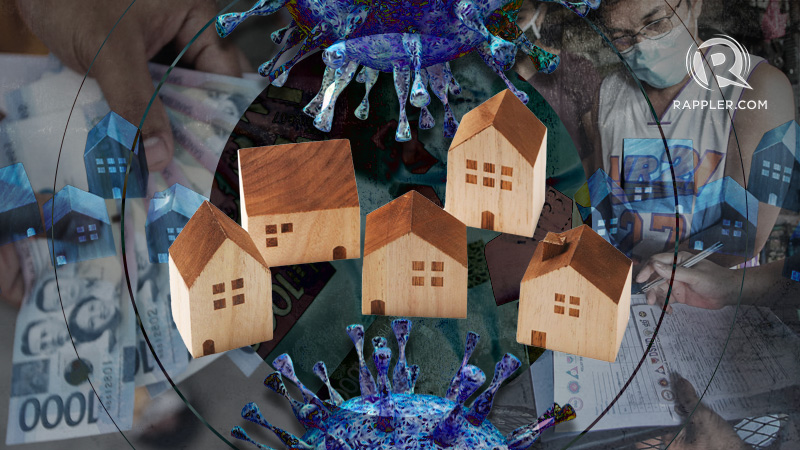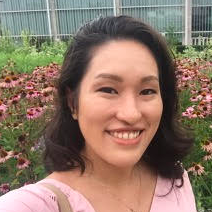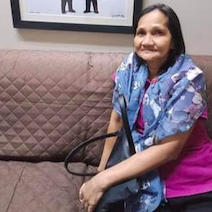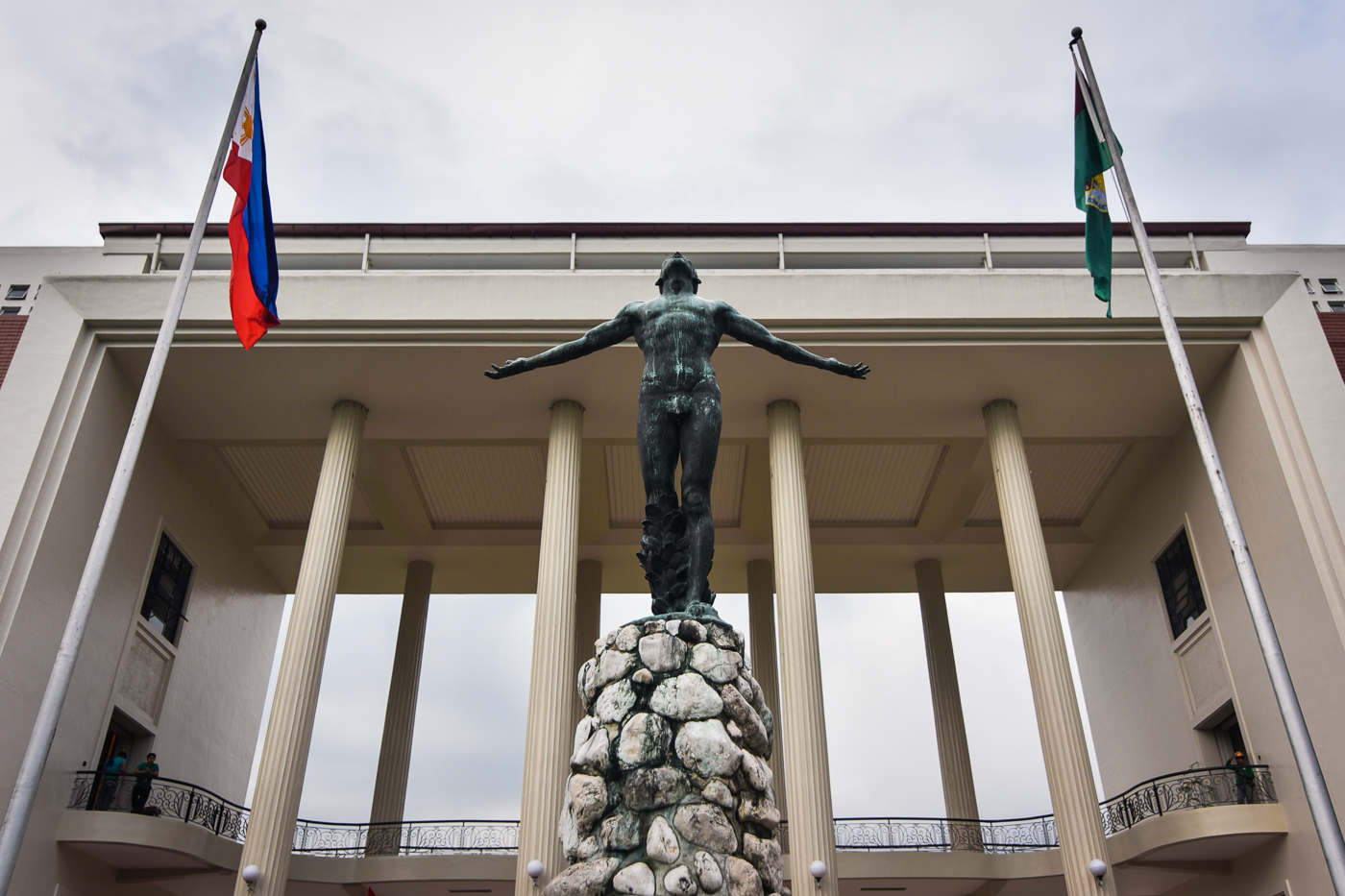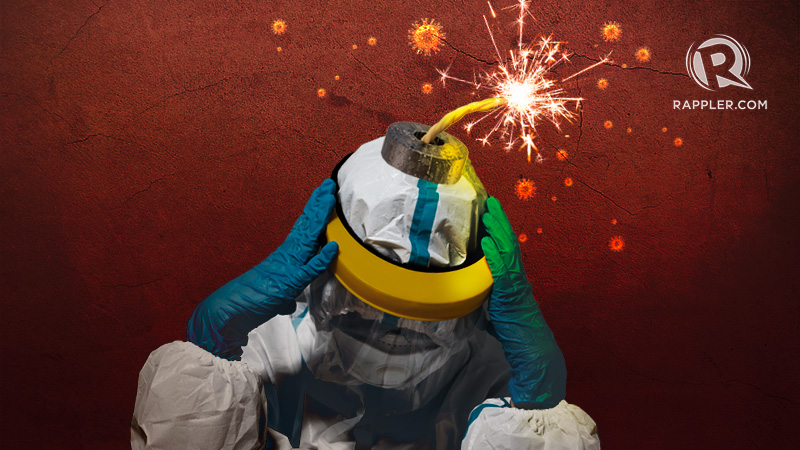![]()
The maritime industry is not spared by the vicious coronavirus pandemic. Lethargic trade forced shipping companies to reduce operations, while news on cruise ships as environments conducive to infection, of states denying their entry, and lockdown on major cities had tourists postpone, if not cancel, cruise trips. According to the World Trade Organization (WTO), economic recovery after a year is still uncertain, as it is contingent on the containment of COVID-19 outbreak and effectiveness of policy responses.
That leaves 1.6 million seafarers around the world sailing in the seas of uncertainty, nearly 25% of whom are seafarers from the Philippines. The unsung heroes of global trade and cruising sectors – the 400,000 Filipino seafarers – have been contributing 5 to 6 billion US dollars of remittances in the Philippines annually. (READ: How gay seafarer Dyosa Makinista proved she's 'queen of the seas')
Those who are sent home have no other choice but to wait for the tides to turn. The repatriation of thousands of seafarers started in early April, thanks to the government offices and recruitment agencies which facilitated their return.
Yet this is a different homecoming. They have to go through pre-departure mandatory tests and other protocols. Some complained of the lack of coordination as they were asked to stay in uncomfortable areas before they were billeted in hotels for another 14-day self-quarantine procedure. After the quarantine period, they will have to wait for the “mercy voyage” or flights arranged by the government for them to reach their respective home provinces. As if displacement never ends, there are also some who received derogatory notes from their neighbors saying that they were not welcome in the area, while other barangay personnel had even refused the entry of repatriates as residents fear that they are carriers of the virus. (READ: [OPINION] Extraordinary occupational hazards: PH migrants during the pandemic)
Now that the world braces for a recession, what comes next for our seafarers? How will they face the new normal? And what is the new normal?
Empty seafarer’s market
The seafarer’s market located in one corner of Manila’s Rizal Park is totally empty. On a normal day before the enhanced community quarantine (ECQ), the grounds used to attract hundreds of recruiters and thousands of hopeful seafarers from all maritime ranks. The place was a vibrant marketplace of recruiters promoting their companies and job hunters searching for the most attractive job offer. Until the ban on physical distancing is lifted, the seafarer’s market will remain closed, and restoring its pre-crisis vibrancy is not assured.
For the cargo ships that remain in operation, their periodic crew changes falling due means recruitment needs to continue. To meet this need despite the sudden change in environment, seafaring recruitment agencies have to go back to the drawing board.
My dad, a former ship captain who currently works in the recruitment business, faces tremendous challenges in navigating the new recruitment set-up. Since he can no longer drive to his office in Ortigas, he has been using online platforms to contact applicants. I witnessed his frustrations as seafarers fail to submit requirements. One can imagine the possible scenarios. Perhaps they don’t own a computer, can’t access the internet, or are not used to technology, in health distress, or have no way of getting essential documents. Online testing is also done with so much distress as examinees are stunned with virtual set-ups. Nonetheless, he acknowledges that this is the beginning of the new normal.
Deployment is another problem. Some seafarers who were able to leave the country remain stuck in the destination city, waiting for the delayed ship to arrive. As reported by Bloomberg early this month, several shipping hubs in Singapore, Abu Dhabi, and Shanghai have suspended crew transfers. This means that manning agencies and ship companies need to locate other ports where crews can embark. Seafarers waiting in these hubs need to transfer to another city or country for a chance to go onboard. Worse, if the ship changes its course due to state lockdown or other border issues, these seafarers will have to return to the country and be subjected to the 14-day quarantine. The painful process causes nothing but anxiety, frustration, and stress, not to mention its hard-hitting financial implications.
Navigating fears
Filipino seafarers have faced various crises even before the outbreak of COVID-19. Early this year, two Filipinos were among the 8 hostages who survived traumatic captivity after their ship MV Happy Lady was attacked by Nigerean pirates. It was a harrowing experience to endure tormenting conditions for 19 days, with thoughts of their families as the only motivation to stay strong and fight for their lives. The two Filipinos survived, but the threat of piracy remains a safety concern even during the pandemic period. (READ: Filipino seafarer dies as Togo pirates release Greek ship – company)
Aside from piracy, Filipino seafarers also found themselves besieged in the middle of political tension between the United States and the Middle East. The last quarter of 2019 saw geopolitical tensions that took a toll on the maritime community. As the US blamed Iran for supporting terrorists, it refused to grant US visas to crews involved in the transport of “Iranian oil.” When the US launched a drone strike that killed Iran’s General Qassem Soleimani, the Philippine Overseas Employment Administration (POEA) and partner agencies have prepared for possible repatriation and other measures.
Ultimately, another phase of geopolitical détente prevailed, and a different form of global war has commenced. This pandemic has attacked not only the health of seafarers but also their dignity and well-being. The International Labor Organization (ILO) and other international institutions have called on their member states to treat seafarers as ‘key workers,’ fearing that donors and suppliers in several parts of the world be prohibited from delivering medical supplies, fuel, water, and provisions to ships amid fear that crews inside the ship are infected with COVID-19.
The infection cases on cruise ships – MV Diamond Princess which was docked at Yokohama Port and MV Grand Princess in San Francisco – have sent a stern warning to the seafaring community that the virus can swiftly spread onboard. Nonetheless, these cases also highlighted the sacrifices of crew members who painstakingly served the passengers and sick crews before and during the two-week quarantine period. We can only hope that the fate of these unfortunate vessels will change the face of the cruising industry in the post-pandemic world not just in preparing for a possible contagion like this, but also by way of improving the working conditions of seafarers.
Where’s the ship captain?
Like other OFWs, our seafarers have entrusted their livelihood to the protection of the company that they work for and ultimately, the state. Thousands of them are still scheduled to leave the country amid the pandemic, shrugging off the threats of the virus, and embracing unrealistic optimism that the danger is about to end. As for the lucky ones who are currently staying with their families, the imminent threat is employment uncertainty as previous shipping demands plunge, and manning agencies downsize the recruitment volume.
The Magna Carta for Filipino Seafarers which is supposed to protect our maritime heroes should have been crucial in this situation. Arguably, the present condition of the seafarers calls for institutional safeguards and protection that could have been provided by the law. If approved, the law seeks to promote seafarers’ rights, responsibilities of ship owners and manning agencies, and social security protection and welfare. Unfortunately, the bill is yet to be debated in the legislature.
In the meantime, seafarers may rely on available government support albeit with some constraints. The OFW Reintegration Program which offers various forms of training, counseling, networking support, and loans may not be conducive to a post-pandemic setting. Such reintegration services should be further reviewed to strategically cater to the needs of displaced OFWs, with less bureaucratic hurdles and stringent processes for the applicants.
Fortunately, the government has provided financial support through the Bayanihan To Heal As One Act which mandated the distribution of $200 to displaced OFWs, including seafarers. But this amount can only provide temporary relief during the period of ECQ. What will happen after the lockdown, and how can these seafarers survive when the maritime industries are down? Clearly, this pandemic has uncovered the disempowerment of Filipino seafarers who, despite their local and global contributions, are struggling at the mercy of the neoliberal forces, defenseless when crisis approaches.
The OFWs in general, and seafarers in particular, need the effective steering power of state policies. Due to the declining shipping activities, some of the best sailors would need to stay inland and look for other opportunities. The current administration that initially promised to create local opportunities so that these “New Heroes” will return to their homeland and stay with their families someday now faces an even worse environment for that promise to be fulfilled.
For sure, hundreds of thousands of Filipino seafarers will have the opportunity to return to their livelihood after the pandemic. But between now and then, rough seas have to be crossed. When they finally get to the other shore, we can only hope that our seafarers are equipped not only with globally acclaimed skills, but also with institutional protection for their safety, dignity, respectable labor conditions, and freedom tseafo return to the embrace of the family they sacrifice for. – Rappler.com
Ron Bridget Vilog, PhD is an Associate Professor at the International Studies Department of De La Salle University, Manila.
![]()



